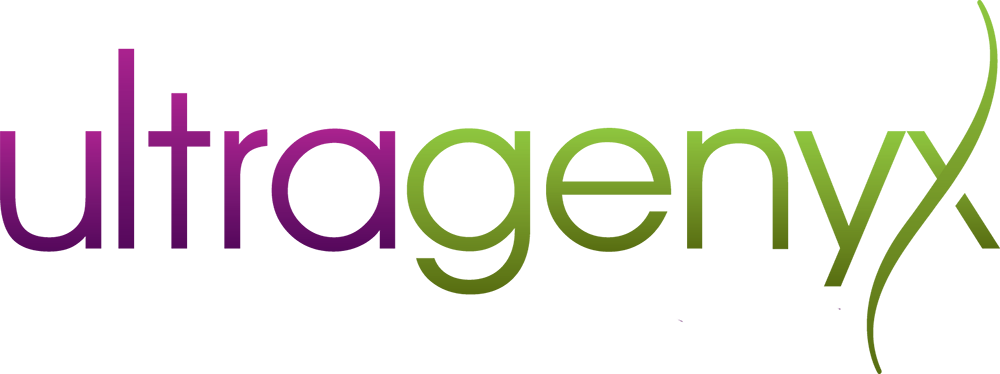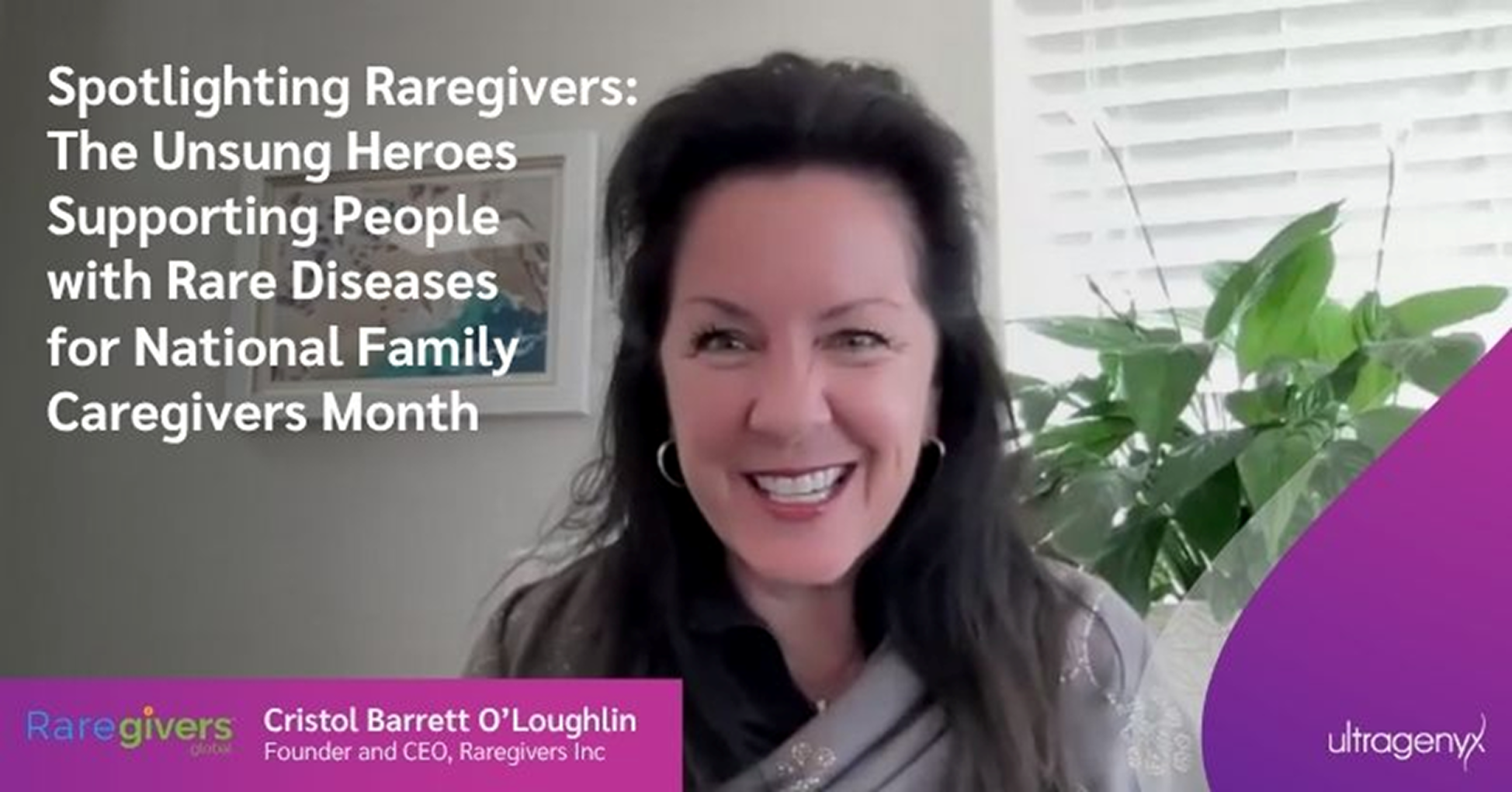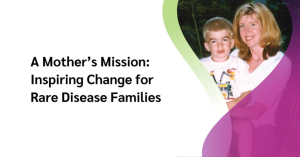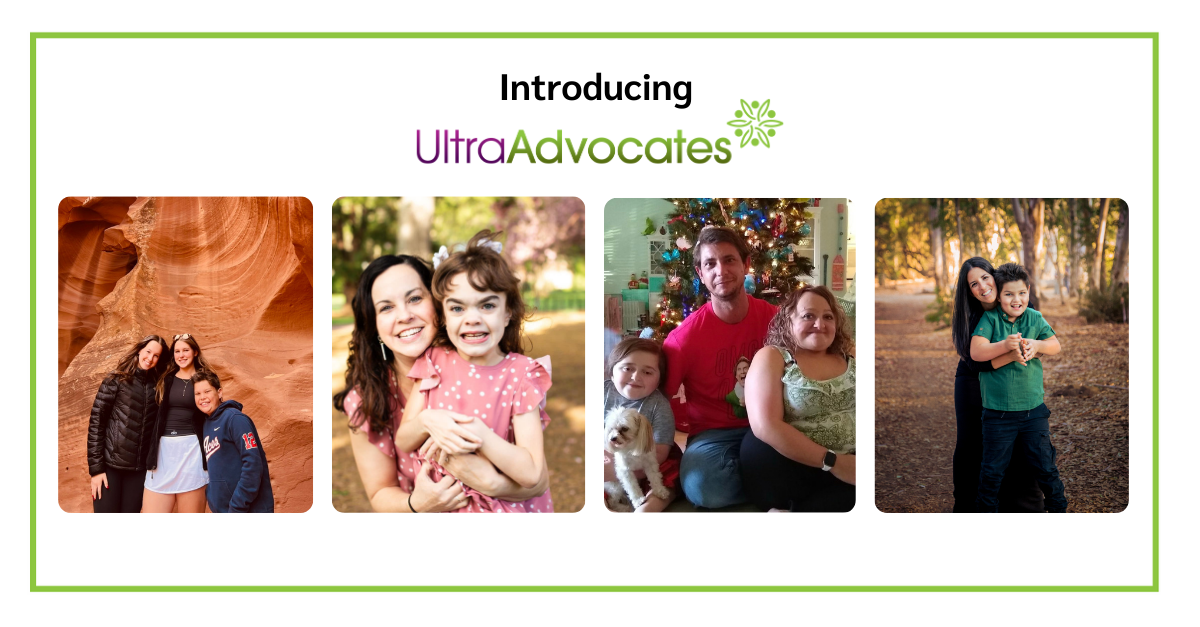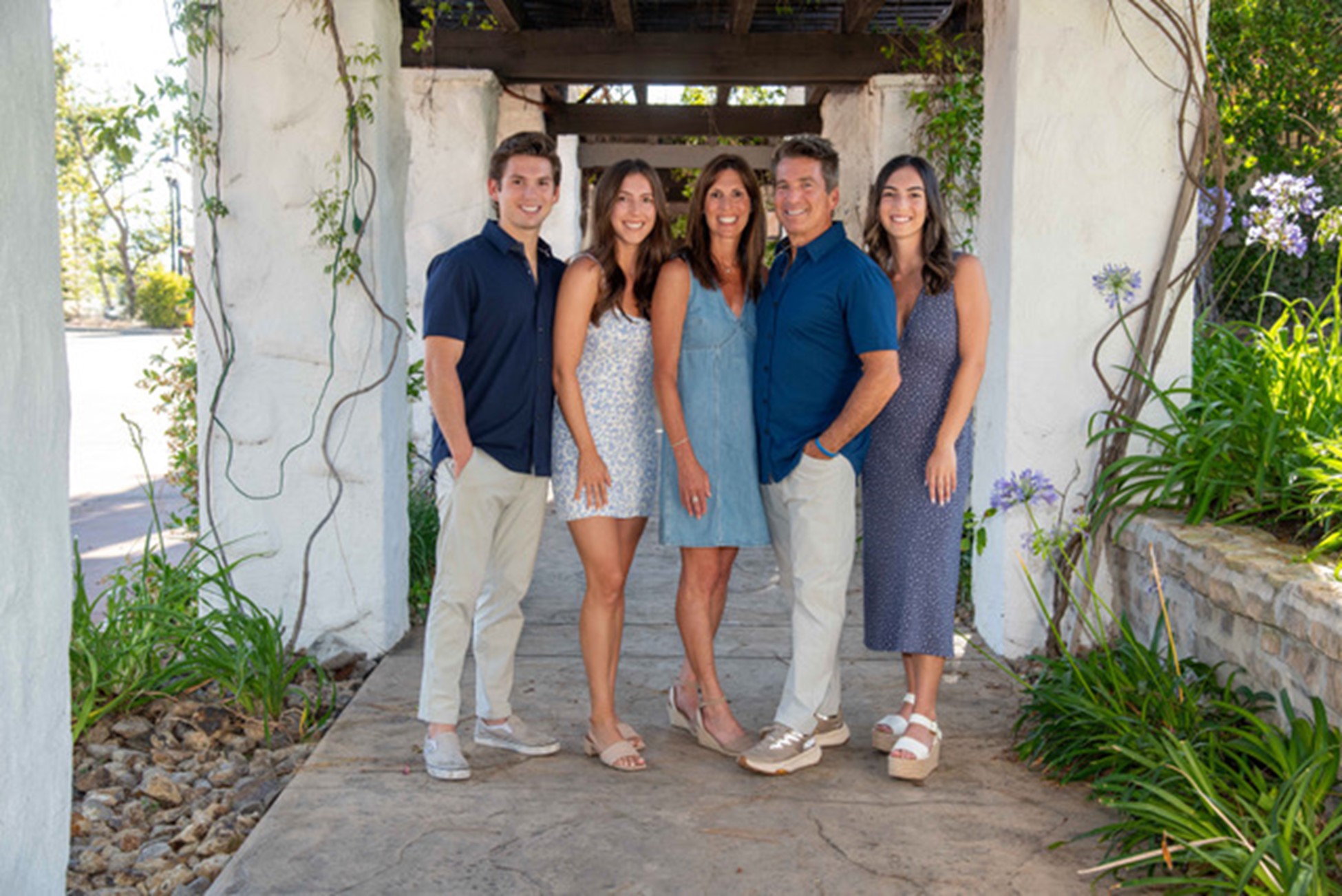Each November, National Family Caregivers Month marks a moment to honor the tremendous efforts of caregivers in ways that both acknowledge their personal sacrifices and raise awareness of the challenges that they face. For families navigating the complex world of rare diseases, this recognition carries special significance, acknowledging not just the physical demands of caregiving, but the profound emotional journey that impacts every family member.
At the forefront of supporting these families stands Raregivers, a global network that has spent 25 years delivering crucial emotional support to caregivers, patients, and professionals across rare, chronic, and complex disease communities. Last year, Ultragenyx was proud to recognize Raregivers’ transformative work with our Global Days of Service Award, supporting the expansion of their vital family programs, including its sustainable psychosocial training, transformative wellness retreats, and a connective peer-to-peer multilingual network.
Today, Raregivers supports over 120,000 families across 38 countries, helping them navigate what founder Cristol Barrett O’Loughlin describes as the ability to “hold both hope and grief in the same human heart.” In honor of National Family Caregivers Month, we sat down with O’Loughlin to discuss the unique challenges facing rare disease caregivers and how Raregivers continues to evolve to meet the needs of this growing global community.
Q: Raregivers is celebrating its 25th anniversary this year. Can you take us back to the beginning and share your inspiration for creating this important global network to support rare disease families?
Twenty-five years ago, my sorority sisters at UCLA and I set out to raise money to support those living with Mucopolysaccharidosis type II (MPS II) or Hunter syndrome, which took the lives of my three older brothers – David, Jared, and Randy. One of our first research grants, in partnership with the National MPS Society, went to UCLA researcher Dr. Emil Kakkis, now CEO of Ultragenyx, for his groundbreaking work in enzyme replacement therapy. We witnessed the full cycle of our philanthropy – from fundraising, FDA approval of his work in MPS I, and the innovations happening across Ultragenyx today. Over the years, our work has expanded, and now, Raregivers provides emotional relief services for a globally connected network of caregivers, patients and professionals across the rare disease community.
Q: You often define Raregivers as those who “hold both hope and grief in the same human heart.” Can you explain what this duality means for the families you serve? What are some common emotional challenges caregivers face that often go unrecognized?
As people, we have an incredible ability to hold both hope and grief in our hearts, this is the Yin and Yang of living with medical complexity. It is estimated that 350 million families globally experience 10,000+ genetically identified rare diseases. Every person across this support system is in some phase of emotional crisis. The stages of grief – denial, anger, bargaining, depression, acceptance, finding meaning – are all present but often go unrecognized. To help start the conversation, the Raregivers Coalition created a research-backed tool and released it as a free, downloadable resource in 15 languages. Raregiver Emotional Journey Map visualizes these stages as a remote island with various landmarks: noticing changes in a loved one, adjusting with or without diagnosis, shifting family responsibilities, realities of full-time care, worry about end-of-life experiences, and finding meaning. These experiences can be isolating, but embracing our emotions also creates space to help us off this island with resources, self-care and social connection, all things we aim to provide through Raregivers.
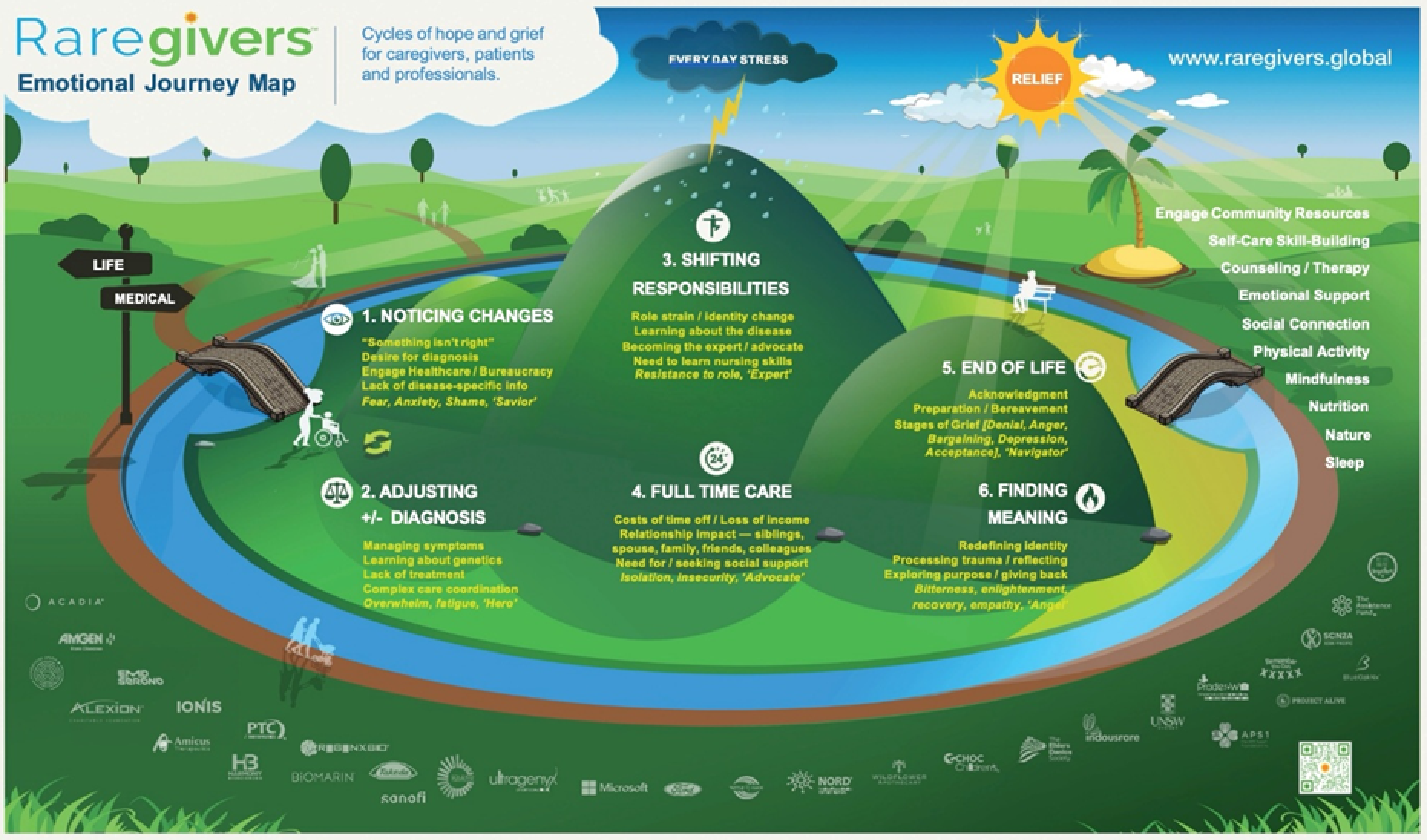
Q: November marks National Family Caregivers Month. Why is this recognition particularly important for the rare disease community?
At Raregivers, we believe when life gets medical, people get emotional. In medically complex situations, we tend to focus on the fix – diagnostics, treatment options, clinical trials, novel treatments. But everyone across the family is wrapped up in that experience, not just spouses or parents, but siblings, aunts, uncles, and grandparents too. The emotional impact across these circles of support is profound. National Family Caregivers Month is an important moment to recognize these broader impacts on all parts of the family, not just immediate caregivers.
Q: What message do you want to share with caregivers reading this during National Family Caregivers Month, especially those who might be struggling today?
A: The caregiving journey includes moments of incredible joy, hope and beauty, but also difficult moments. National Family Caregivers Month provides us a moment to reset and tap into our feelings about this role. It allows us to honor the full range of emotions in this complex human experience. It also reminds us to find those micro-moments for self-care. Take deep breaths, practice mindful meditation while coffee brews, walk in nature, let the sunshine on your face, and connect with community. Any small moment can be healing to the soul.
Q: As you look ahead, what existing or emerging needs do you see in the rare disease caregiving space?
The United Nation’s Sustainable Development Goal 3 recognizes the fundamental human right to good health AND well-being, acknowledging that physical and emotional health are intertwined, fundamental to balance within individuals, families, society, and humanity. Even if you successfully address your physical health, we often tend to shy away from prioritizing our emotional well-being. When I imagine the future of rare disease care, I believe we have an opportunity to bring existing emotional support systems into our community, engaging with social workers, spiritual care providers, and child life specialists.
My hope is that we can all embrace this “feelings-first” mentality and bring emotional well-being to the forefront.
Q: For caregivers who want to connect with your community, what’s the best first step to accessing your resources and support network?
To connect with Raregivers and engage with our resources you can visit www.raregivers.global. During National Family Caregivers Month and throughout the year, we also encourage people to explore our Microsoft AI-generated list of Raregivers 100 Honorees— the artists, actors, business leaders, researchers, musicians and other unsung heroes supporting those living with rare, chronic, and complex conditions, who transform the emotional journey of Raregivers everywhere. You can see the full list and nominate your own Raregivers at www.raregivers.global/raregivers100.
